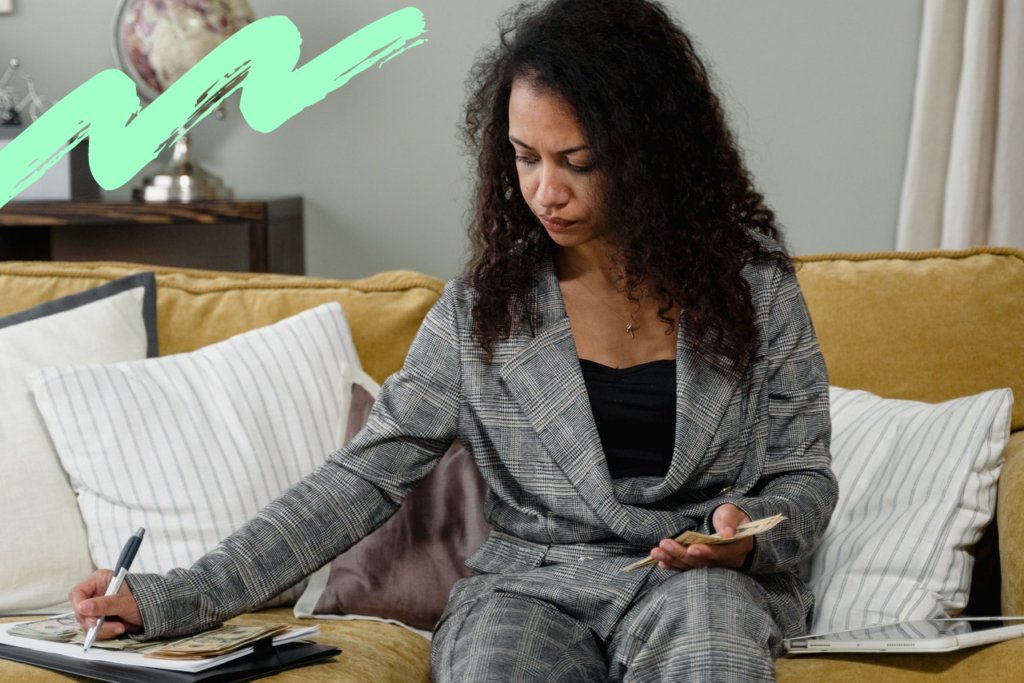We’ve all seen the deluge of think pieces in the past few months, about the sacrifices young folk might have to make to be able to afford a house. Cut out the Netflix, eliminate the avocado, stop buying that daily Starbucks…
Yep, it’s perhaps the least useful advice out there. For a start, you’d have to go 4’307 years without Netflix to save enough for the average house in London, and we really don’t have that long. What would you fill those years with anyway, without the chance to binge watch Bridgerton, Stranger Things et al?
Anyway, before we consider the time it takes to save up for a whole house, let’s first consider the deposit. It’s common practice for you to need at least 5% of the price of your house as a deposit, but you should aim to save up around 15 to 20%, depending on the price of the property and how good your credit rating and history is.
That number will largely be determined by your current financial position. With that in mind, if you’re looking to save money for a house deposit, here are 6 tips.
Enlist The Help Of A Mortgage Broker
Speaking to a mortgage broker is a smart choice when you’re looking to buy a house as they will be able to level with you and inject a much-needed sense of realism into how long it’s going to take you and just what level of savings are going to be needed.

Can You Save On Your Rent?
Are you able to move back to your parents’ house? If you can, you can start putting your previous rent payments into your savings account. You’ll avoid extra rental expenses this way and reduce how much you have to pay monthly. You’ll even be able to save money because you are going to save on bills, too, though you might well lose a little of your independence (and your sanity) doing so.
If that isn’t feasible, consider downsizing your current living arrangements while you save up for a deposit, or move into a house share, which will likely lead to lower rent payments. Whilst it isn’t ideal and won’t help you generate enough for a deposit overnight, every little helps.
Sort Out Your Credit Score
It’s also harder to save for that deposit when you have struggled with your finances in the past, but all hope is not lost.
That said, you shouldn’t ignore your debt and simply hope for the best. Go through your credit file and pay off any outstanding debt that you might have. When you do this, you increase your borrowing power, and reduce the amount of deposit you’ll have to put down upfront. By having a high credit score, you can be sure to secure a lower necessary deposit.
There are many ways that you can improve your credit score, but it’s important to keep on top of your credit report and try not to apply for any credit for around a year before you apply for a mortgage. Somewhat ironically, it’s also important to note that simply performing a credit check can cause you to lose a few points on your overall credit score.
Pay Off Debts Before Applying For A Mortgage
Do you have loads of outstanding debts? Lenders will look at everything from car payments to existing loans to get a picture of your financial health before offering you a deposit amount.
While of course, having these types of debts is completely normal and can actually demonstrate your ability to pay back money on time, lenders want to understand how your pre-existing loans may eat into your income.
Generally speaking, lenders will be worried if you’re borrowing more than 30% of all the credit available to you. Say, for instance, that you have a credit card with a £5000 credit limit. If you’re using more than £1500 of that, it might indicate that you have trouble managing your debts.
Read: How to make yourself look more financially attractive to mortgage lenders

Consider Buying Part Of A Property Through Shared Ownership
Another potential avenue to buying your own house with a reduced deposit is through shared ownership. This allows you to buy a share of a property (usually between 10% and 75%) and pay rent on the remaining share. You can then increase your share gradually, which is known as staircasing.
The main advantage of shared ownership is the smaller deposit requirement. That said, you will have to pay all of the maintenance on the property, even if you own a low percentage of it.
See How The Government Can Help
You may find that you’re able to utilise the UK government’s Help to Buy scheme, which in some cases can allow you to buy a property that is worth more, even if you don’t have enough of a deposit already saved up.
In April 2021, the UK government announced the mortgage guarantee scheme. This scheme helped potential buyers and investors secure a mortgage for their property purchase with just a 5% deposit. On top of that, a stamp duty holiday has been extended until the 31st December 2022.
The Bottom Line
The path to home ownership is rocky and complex, but there is help available. Good luck in your search and we look forward to our housewarming invitation!
*Anything written by IDEAL Magazine is not intended to constitute financial advice. Always consult with an independent financial advisor or expert before making an investment or any personal finance decisions.*





